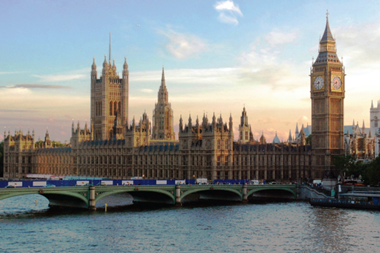The UK government has launched a consultation on proposals to require defined contribution (DC) schemes to disclose and explain their policies on illiquid investment as it also laid out its intention to proceed with reform of the charge cap with regard to performance fees.
The Department for Work and Pensions (DWP) is also proposing to require that DC schemes with over £100m in assets publicly disclose their current asset allocation in their annual chair’s statement.
According to the DWP, providing this information will bring greater transparency, consistency and encourage further competition based on overall value for money.
It also said it hoped the policy would trigger a “cultural shift across the market needs to take place to make less liquid assets a genuine option for DC scheme trustees”.
The disclosure proposals to some degree revive those consulted on in 2019 in response to the Patient Capital Review of November 2017. The 2019 proposals were paused after the consultation to monitor market developments and adapt policy in response to stakeholder suggestions.
Charge cap reform still on
Entitled ‘Facilitating investment in illiquid assets’, the consultation document published today is a “combined consultation”, also including the government’s response to a November 2021 consultation on exempting performance-based fees from the 0.75% regulatory charge cap for DC schemes.
Today the DWP revealed it would be pursuing with its charge cap reform agenda, saying it had taken on board the “mixed reaction” to the proposed change.
A total of 54 responses from a mix of organisations across the industry were submitted to the consultation, according to the DWP.
Broadly, those from the financial services sector and some master trusts welcomed the proposal, while trustees’ service and legal advisory bodies, along with other master trusts, said they were “not convinced” and some said the proposal may be counter-productive. Strong opposition came from different consumer and trade groups.
The Pensions and Lifetime Savings Association (PLSA) today reiterated its opposition to changing the charge cap to exclude performance fees, and master trust The People’s Pension said the structure and level of the cap was “not the most important barrier facing schemes that want to invest in less liquid assets”.
The government plans to engage further with industry and other stakeholders on the charge cap and explore how the feedback received could be addressed in the design of future policy.
It said any reforms “should be careful but precise” and that changes it proposed would be aimed to “first and foremost ensure members are sufficiently protected”.
“We are encouraged by the feedback we received that the policy intention we set out to only exempt ‘well-designed’ performance fees that are paid when an asset manager exceeds pre-determined performance targets is well intended,” it said.
“However, we recognise that all performance fees are not created equal and that the concept may be new to trustees. Therefore, we intend to consult on principle-based draft guidance alongside any proposed consultation on draft regulations.”
Consolidation, employer-related investments
The combined consultation document also includes a summary of the responses the government received to last summer’s call for evidence on the future of the DC market – “one of the most fruitful calls for evidence we have run recently,” it said.
The consensus, DWP relayed, was for government to slow down the process to ensure better member outcomes are being achieved. Today the DWP said it would not be introducing any new regulatory requirements with the sole purpose of consolidating the market in 2022. It would instead work closely with The Pensions Regulator to monitor the impact of value for members’ assessments that small DC schemes will start to produce this year.
Today’s combined consultation document also includes government proposals to bring forward legislation this year to reduce burdens and further open up private markets by removing restrictions which currently apply to large authorised master trusts.
“I am passionate about ensuring pension schemes have the necessary information, and a broad range of options, to deliver the best possible outcomes for the record number of Brits now saving for retirement,” said Guy Opperman, minister for pensions.
“Opening up greater illiquid asset options to DC scheme investment will help do just this and enable schemes – and savers – to benefit from more diversified portfolios, while also bolstering the role pension investments can play on our journey to a carbon-free economy.”
Read the digital edition of IPE’s latest magazine















